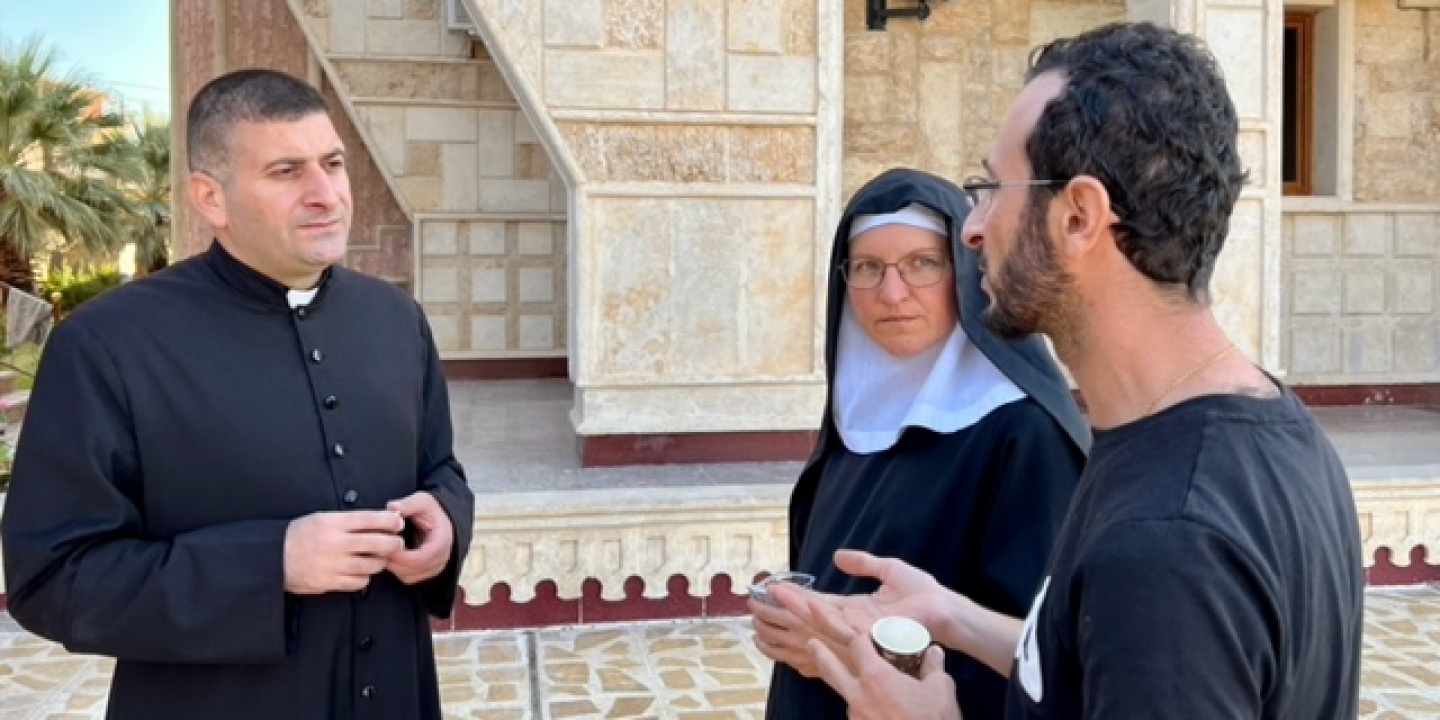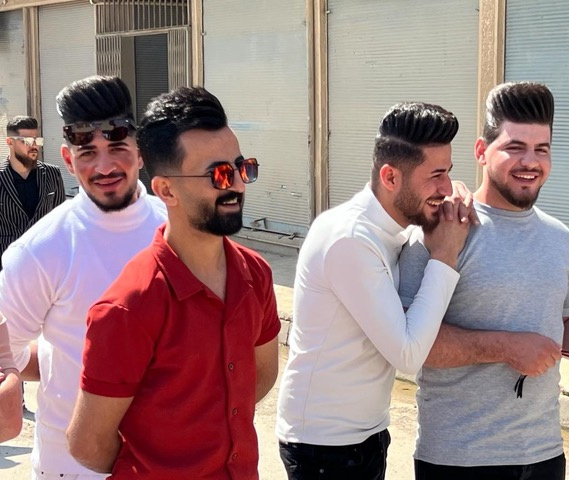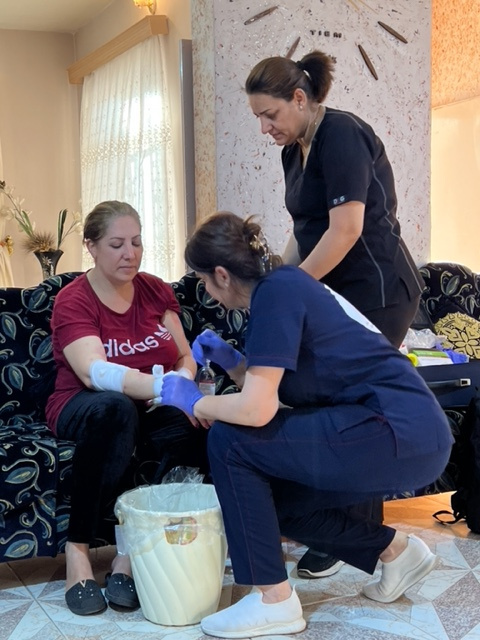Returning to Bakhdeda
Anisa returned to Bakhdeda in Nineveh, Iraq in October 2023
By Anisa Mehdi / November 05, 2023

Father Estefanos with Sister Makrina Finlay and Baraa Jabbo at the Church of Saints Behnam and Sarah, Baghdeda | Anisa Mehdi, October 2023
Hello again from Bakhdeda, in Nineveh, Iraq.
This tiny town, 20 miles east of Mosul, Iraq, is the subject of the first section of Abraham Path Initiative (API) Fellow Stephanie Saldaña’s new book, What We Remember Will Be Saved: A Story of Refugees and the Things They Carry. The story she shares inspired our initial application to the ALIPH Foundation for the intangible cultural heritage projects we are completing now.
Bakhdeda was once a town of 100,000 - that was before the population fled in 2014. After three years, less than 50% of the population returned. Others moved permanently to France, Germany, Australia, and the USA.
The town was rubble and ruined when people got back. The Syriac Catholic Church spearheaded the revitalization of Bakhdeda, which is the largest Christian city in Iraq. API’s local project manager, Baraa Jabbo, is a civil engineer who helped rebuild more than 2000 homes. Today, schools are open, grocery stores and fruit markets are plentiful. Tea shops fill every evening with men gathered to play shish-bish (backgammon). Barber shops dot each block, as it is the fashion for young men to sport wild and carefully coiffed hairdos and beards.


Sister Makrina Finlay (API’s chief researcher on our project in Shingal, ancestral homeland of the Ezidi people), and I arrived here three weeks after another Bakhdeda tragedy. “It’s the worst I have lived through,” says Baraa. Fireworks inside a wedding reception hall started a fire that killed 150 people (including families of the bride and groom) on September 26. An investigation is underway. As is a documentary by Journeyman.tv.
Every family in town knows someone who died or was injured. The 120 survivors are being treated daily by medics supported by the Assyrian Aid Society, API’s partner on our Bakhdeda-based heritage project. Sr. Makrina and I went on rounds with the medics a few nights ago to share our condolences with survivors.
Baraa told me that as news spread about the fire, people rushed to Bakhdeda from Mosul (30 minutes away), Baghdad (six hours away), Karbala, Najaf, and Babylon (farther still), to donate blood and help in any way possible. They offered condolences and support. They drove the injured to hospitals in nearby cities, as the Bakhdeda hospital wasn’t large enough to admit everyone needing treatment. It was a time of connection and compassion among different ethnic, linguistic, and religious groups, “just like it used to be before 2014,” Baraa noted. Coming together as neighbors in a time of crisis.
API’s founder, William Ury, reminds us that “what we have in common is greater than what separates us.” We envision a future in which this region becomes known worldwide for hospitality and walking trails—a place where people connect through conversation, change perceptions, and transform relationships. And we do that by nurturing economic growth, cross-cultural communication, and heritage preservation through community-based tourism, online programming, and making grants to storytellers to spread our vision far and wide.
Against the odds, we pursue a course of walking and drinking tea with friends and strangers from the deserts of the Sinai to the rivers of the Zagros Mountains.
Thank you for engaging in the “marvelous victory” API aspires toward: walking trails for talking, income stability for families living off-the-beaten-track, and cultural heritage preservation for generations to come. Our mission today is more important than ever.

